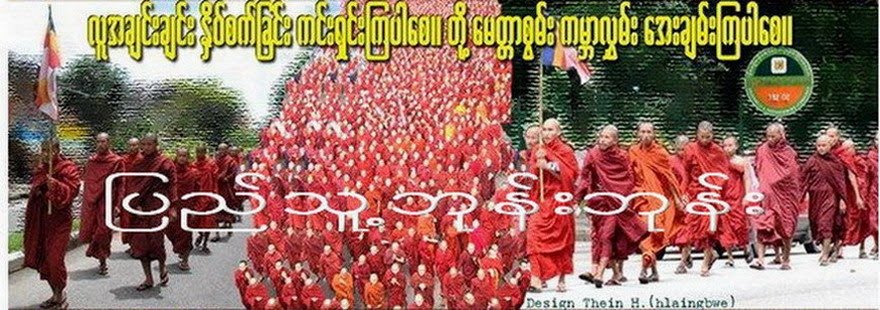By VACLAV HAVEL, DESMOND TUTU and RICHARD VON WEIZSACKER
PRAGUE — The enormous suffering of the Burmese people caused by the recent cyclone, which has caused tens of thousands of deaths, deserves the sympathy of the entire world. But more than sympathy is needed, because the Burmese military junta's incompetence and brutal oppression are further aggravating the tragic consequences of this natural disaster.
In the midst of the cyclone's devastation, Burma's ruling generals went ahead and held a referendum on a new constitution. But, according to Burma's Constitutional Referendum Act, members of religious organizations, those subject to criminal prosecution, and members of ethnic groups that have not agreed to a ceasefire with the government were barred from voting. Thus, all current and former political prisoners, about 500,000 Buddhist monks, and more than twice as many members of ethnic minority groups living close to the borders were banned from the vote.
Moreover, according to the new constitution that was supposedly "approved" by the "referendum," Aung San Suu Kyi, who has never been prosecuted and still remains under house arrest, is barred from standing in the 2010 general elections under the pretext that her deceased husband was British. Is the world really willing to accept such an absurdity?
We strongly support the Burmese opposition's campaign calling on the country's citizens to reject the constitution, which does not promote human rights, but only confirms the military's political role. Many democracy activists have been arrested throughout the country. The regime's Draconian "law" (5/96) prohibits participants from criticizing the draft constitution; those who dare to challenge the regime face a 20-year prison sentence.
Given the violent suppression of last September's mass demonstrations (the "Saffron Revolution") led by Burma's Buddhist monks, and the constant repression in the country, it is not surprising that the military junta tries to shroud its despotic tendencies in pseudo-democratic measures such as the sham electoral process of the referendum.
Sadly, the international community did not respond to last autumn's mass arrests of human rights defenders. The 88 Generation leaders, including Min Ko Naing, Ko Ko Gyi, women activists like Su Su Nway and others, bravely expressed their grievances time and again in letters, statements and public demonstrations prior to the Saffron Revolution. Their courageous calls fell on deaf ears; they now remain imprisoned.
It is time to strongly condemn the exclusion of a considerable number of people from voting and to insist on the release of Burma's political prisoners. The United Nations and the European Union should be ready to reject conclusively the result of the referendum and strengthen sanctions against the regime. Burma's neighbors in the Association of Southeast Asian Nations should stop looking the other way as Burma's rulers trample on Burma's citizens.
The U.N. Security Council should consider introducing a universal arms embargo, and the EU should adopt banking sanctions that target the regime and its cronies.
Moreover, the U.N. should not only condemn, but without further delay put a stop to today's greatest atrocity: the regime's obstruction of foreign assistance to victims of the cyclone. Their deaths are the sole responsibility of the military junta, which deliberately and with knowledge of the likely consequences has closed the door to humanitarian aid and workers from all over the world.
Their actions represent an appalling crime against humanity.
The military-run referendum will not bring democracy to Burma, nor will it help the Burmese people, who now are suffering not only from the authoritarian regime and poverty, but also from a grave natural disaster and its totally inept handling by the cynical generals. Burma's rulers have failed in their duty to protect the Burmese people, but active and decisive political action by the international community toward the regime may yet do so.
Vaclav Havel is a former president of the Czech Republic, Desmond Tutu is a winner of the Nobel Peace Prize, and Richard von Weizsacker is a former president of Germany. © 2008 Project Syndicate (www.project-syndicate.org)
Wednesday, May 28, 2008
Myanmar's referendum farce
Posted by Ashin dhamma at 5:00 PM
Subscribe to:
Post Comments (Atom)

0 comments:
Post a Comment